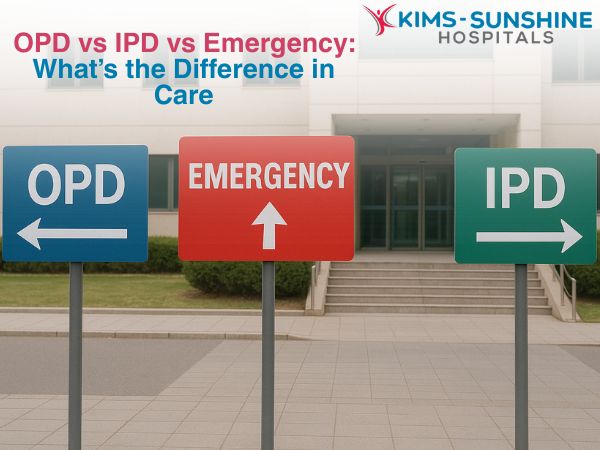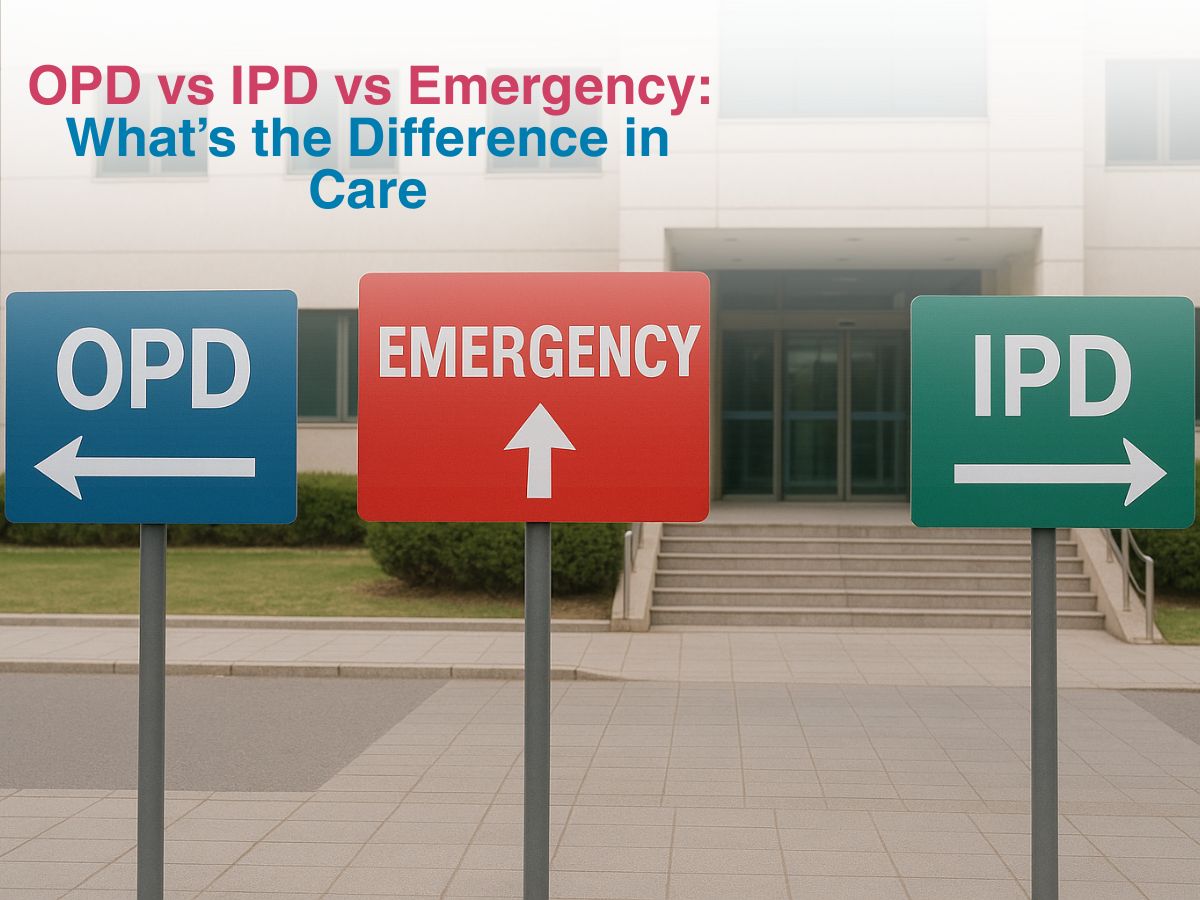
OPD vs IPD vs Emergency: What’s the Difference in Care

Not everyone is familiar with medical terminologies such as OPD, IPD, and emergency care. When faced with a situation where you have to decide which healthcare system would be most suitable to your needs can be very daunting. Each represents a distinct level of medical attention, suited to the severity and urgency of a patient’s condition. Understanding the difference between each of them is crucial for making informed decisions about where and when to seek care.
Difference between OPD and IPD in hospital
We often come across the terms OPD and IPD but do we really know the difference between them? First, let us know what OPD is in medical terms. OPD stands for Outpatient Department and involves non-emergency treatments and consultations that do not require overnight hospitalization. On the other hand, IPD is the abbreviated form of Inpatient Department. It means overnight hospital admission for more serious conditions.
Types of hospital services: OPD IPD
Both OPD and IPD are healthcare service areas in a hospital setting where patients can avail medical consultation, diagnosis, and treatment, depending upon the complexity of their condition.
- OPD: Patients come to the Outpatient Department (OPD) for routine medical examinations, follow-up visits, receiving minor treatments, or specific medical consultations, and return home the same day without the need for hospital admission.
- IPD: Patients are typically admitted to the hospital’s Inpatient Department (IPD) when they require continuous monitoring, some surgical procedures, or intensive treatments that cannot be completed in a single day. Patients may be required to stay in the hospital for durations ranging from overnight to several days or weeks, depending on the severity of their condition and the treatment plan. The Inpatient Department (IPD) delivers comprehensive and continuous care led by dedicated doctors and nursing staff, coupled with advanced diagnostic procedures and specialized medical treatments, ensuring patients receive essential medical attention round the clock.
Another type of hospital service that is available for patients is the emergency department. Here, patients who are facing critical and life-threatening conditions are brought to get immediate medical attention.
Emergency care services in hospitals
Emergency care services are of prime importance because providing the right treatment at the right time can save precious lives. Individuals experiencing acute illnesses or injuries often require emergency medical attention for numerous conditions—including medical, surgical, and obstetric emergencies such as trauma, infections, pregnancy complications, heart attacks, or strokes. Effective emergency care relies on trained medical professionals who can promptly assess the situation, stabilize the patient, and initiate appropriate diagnostic procedures. Thus, emergency services provide rapid and quality medical care at the time of emergency.
Role of OPD, IPD and Emergency in healthcare
While OPD services are cost-effective as they do not require overnight hospital stay, IPD services demand higher costs due to extended stays. OPD services focus on specific health issues or routine check-ups while in an IPD setting, holistic care is provided for multiple aspects of a patient’s health, simultaneously. These are some of the main differences between outpatient and inpatient care. When compared to both OPD and IPD services, emergency services focus on providing immediate care and relief at the time of acute illness and injuries that require immediate attention.
Thus, all three services are different facets of medical and healthcare provided by hospitals. Depending upon the criticality and urgency of a situation, the patient can choose one among these.






